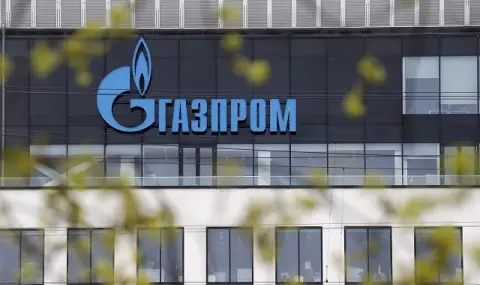Russian information channels continue their campaign after the suspension of natural gas transit through Ukraine on January 1.
After the state agency TASS this morning reviewed the statistics of the last year with the assertion that by the end of 2024 Russia had delivered more gas to Europe than the previous year, the Russian media disseminated a comment by the artistic spokesperson of the Russian Foreign Ministry Maria Zakharova, who finds it appropriate to take a position in defense of the interests of Europeans and point out the culprits - the European authorities themselves - for their suffering due to the lack of Russian gas.
It is striking that all publications in the Russian media spare information about the state of the Russian market itself, where "Gazprom" became the main victim of Putin's gas war - last year the monopolist turned out to be unprofitable for the first time in a quarter of a century, and its revenues in two consecutive years decreased by more than 25%. The losses of the Russian monopolist forced the Russian authorities to loosen the self-imposed payment restrictions, which led to the early suspension of supplies to Bulgaria in 2022, in order to achieve a real circumvention of the sanctions on "Gazprombank".
The termination of supplies to Europe of competitive and environmentally friendly Russian gas due to the suspension of transit through Ukraine weakens Europe's economic potential and has a negative impact on the standard of living of Europeans, begins her commentary this morning by the spokesperson for the Russian Foreign Ministry, Maria Zakharova.
According to her, "the geopolitical basis of the Kiev regime's decision is visible", and the main beneficiary of the redistribution of the Old World's energy market and the main sponsor of the Ukrainian crisis are the United States. The first victim of their predatory strategy was the largest European economy - Germany, Zakharova continues and recalls the fate of the two pipes of the "Nord Stream".
"Now other countries from the previously economically successful and independent European Union will have to pay the price for American patronage", the Russian Foreign Ministry spokesperson also predicted and commented with sympathy for European citizens, pointing out to them the culprits of their misfortune: "The responsibility for the suspension of Russian gas supplies lies entirely with the United States, the puppet regime in Kiev, as well as the authorities of European countries, who sacrificed the well-being of their citizens in the name of financial support for the American economy", Zakharova emphasized.
As the commentary says, "we would like to emphasize that the authorities in Kiev decided to stop pumping natural gas from Russia to the residents of European countries, despite the fact that "Gazprom" fulfills its contractual obligations". None of the information, including the state-run TASS, indicates which contractual relations are in question, after the contract between "Gazprom" and the Ukrainian supplier "Naftogaz" expired at the beginning of this year, and Ukraine stated its intention not to extend it at the beginning of 2024. There is also no information that "Gazprom" or other Russian institutions have taken any serious steps to make this happen, with the exception of a few statements at the political level.
After the cessation of supplies through Ukraine, the only currently operating route for exporting piped gas to Europe is "Turkish Stream" (in our country, its continuation as "Balkan Stream"), and based on it, the share of Russian gas on the European market has decreased to between 5 - 7%. For comparison, in 2021, before the Kremlin started a gas war against the EU, it accounted for 45% of the natural gas used in Europe.
It is also impressive that the state-run TASS agency consistently and in each of its publications reminds of Ukraine's expressed readiness to continue supplies through its gas transmission system at the request of the EC, if this is not Russian gas, however. The Russian president has also admitted options for contracts through third parties - Turkish, Hungarian, Slovak and Azerbaijani companies.
